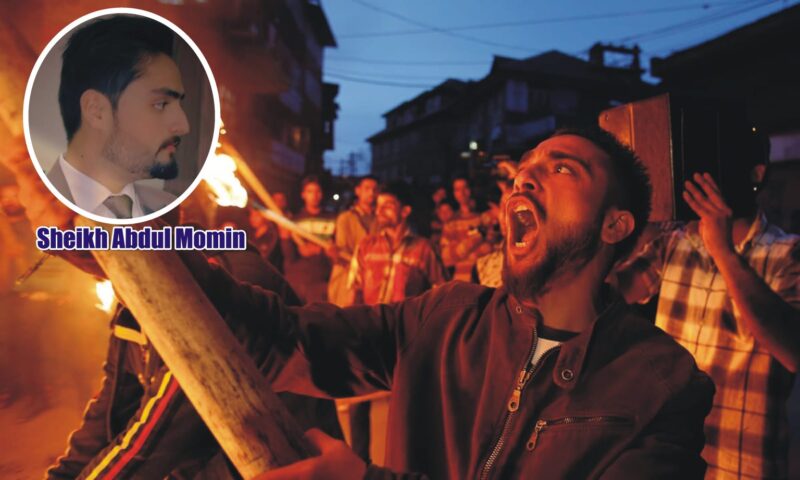Sheikh Abdul Momin
The Kashmir dispute, rooted in the 1947 partition of the Indian subcontinent, remains one of the world’s most dangerous and long-standing conflicts. For over seven decades, the people of Indian-administered Jammu and Kashmir have lived under military occupation, demanding their UN-recognized right to self-determination. In this pursuit, more than 100,000 Kashmiris have lost their lives, while thousands have been forcibly disappeared, arbitrarily detained, or tortured. The region has become synonymous with pain, repression, and broken promises.
Despite UN Security Council Resolution 47 (1948)—which calls for a free and impartial plebiscite—India continues to defy international law and suppress Kashmiri voices. The conflict took a grave and irreversible turn on August 5, 2019, when the Indian government, led by Prime Minister Narendra Modi, unilaterally abrogated Articles 370 and 35A of its Constitution, effectively ending Kashmir’s special status. This move, widely criticized as unconstitutional, was driven by the extremist ideology of Akhand Bharat (Greater India) and triggered a military lockdown, mass detentions, curfews, and a prolonged communications blackout.
Today, more than 900,000 Indian troops patrol the region—more soldiers per capita than in any other conflict zone—making Kashmir the most militarized territory on Earth. In the wake of the 2019 clampdown, over 13,000 young Kashmiris were detained under draconian laws such as the Public Safety Act (PSA) and the Unlawful Activities Prevention Act (UAPA), which allow for detention without trial. Internet shutdowns—some extending beyond 550 days—crippled communication, education, healthcare, and the local economy.
International human rights watchdogs including Amnesty International, Human Rights Watch, and the United Nations Human Rights Council have condemned India’s actions. The 2019 OHCHR report detailed widespread abuses such as arbitrary arrests, torture, and the use of pellet guns, which resulted in permanent blindness for over 1,000 civilians, many of them minors.
Adding to these concerns, India has issued more than 3.4 million domicile certificates to non-Kashmiris since 2019—a move widely interpreted as an attempt to alter the region’s Muslim-majority demographic. Such demographic engineering violates the Fourth Geneva Convention, which prohibits changes to the population composition of occupied territories.
Recently, the Pahalgam attack has been used by the Indian government to intensify hostilities against Pakistan. However, Pakistan’s firm diplomatic and military posture has so far deterred further escalation. Yet, the ruling Bharatiya Janata Party (BJP), driven by Hindutva nationalism, seems poised to make another strategic misstep—one that could ignite a broader conflict.
India and Pakistan are both nuclear-armed nations. A single miscalculation over Kashmir could lead to a catastrophic regional or even global conflict. The international community can no longer afford to be a silent spectator. It is imperative that the United Nations, Organization of Islamic Cooperation (OIC), European Union, and global powers intervene decisively to ensure the implementation of long-standing UNSC resolutions.
Kashmir is not just a territorial dispute; it is a question of human rights, justice, and dignity. If the world continues to look the other way, the consequences may extend far beyond South Asia—threatening international peace and security. The question remains: will the world rise to prevent disaster—or remain complicit through silence?
(The writer is an Islamabad-based Kashmiri journalist working with Neo TV).


Comments are closed.